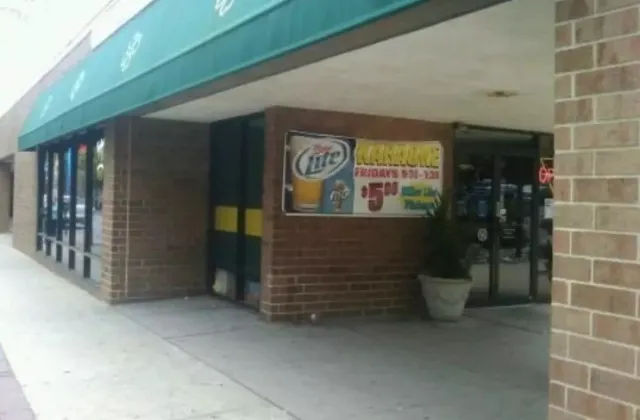Tipping is deeply ingrained in American dining culture, but what happens when a tip sparks a legal battle? In 2009, two college students, John Wagner and Leslie Pope, faced an extraordinary situation: they were arrested for refusing to pay a $16.35 tip at Lehigh Pub in Bethlehem, Pennsylvania. This bizarre incident triggered nationwide debate over tipping practices, service quality, and the role of law enforcement in such disputes. Here’s a closer look at the story and its broader implications.
The Incident: Poor Service Leads to Refusal

What began as a routine night out quickly spiraled into a legal fiasco. Wagner, Pope, and their friends visited Lehigh Pub expecting a relaxing evening, but the dining experience left much to be desired.
- Frustrating Wait Times: The group waited over an hour for their food, causing mounting frustration.
- DIY Service: Pope reported that she had to fetch her own drink refills and even silverware because the waitress was inattentive.
Disheartened by the poor service, the group decided to pay only for the food and drinks, totaling $73.87, and refused to pay the automatic gratuity of $16.35. What they didn’t anticipate was that this decision would escalate into a confrontation with law enforcement.
From a Restaurant Dispute to Jail
Refusing to pay a tip typically falls within a customer’s discretion, but at Lehigh Pub, it became a matter for the police. The restaurant argued that the gratuity was a mandatory part of the bill and contacted authorities.
- Police Involvement: Wagner and Pope were charged with theft after refusing to pay the tip.
- Immediate Arrest: The students were taken into custody, sparking public outrage and disbelief.
This extreme response raised critical questions: Can tips be legally enforced? And was calling the police an overreaction?
The Legal Outcome: A Case Dismissed
The arrest of Wagner and Pope caught the attention of the Northampton County District Attorney, John Morganelli, who dismissed the charges, calling the situation a civil dispute rather than a criminal matter.
- Civil vs. Criminal: Morganelli emphasized that withholding a tip for poor service shouldn’t have led to criminal charges.
- Fairness in Tipping: He also criticized the idea of enforcing tips when the service provided was subpar.
While the dismissal offered some relief to the students, the experience of being arrested and the resulting media storm had already left a lasting impact.
The Debate Over Tipping Culture

The incident at Lehigh Pub highlighted broader tensions surrounding tipping in the U.S. Public reactions ranged from fierce support for the students to staunch defense of tipping as a cultural norm.
- Supporters of the Students: Many argued that tips should reflect the quality of service and shouldn’t be enforced if the experience was unsatisfactory.
- Defenders of Mandatory Tips: Others believed that tipping is an essential part of dining out and should be honored, regardless of service quality.
The case also drew attention to the differences in tipping practices globally. For instance, in countries like Japan and South Korea, tipping is often considered rude, while in the U.S., it has become an integral—and often contentious—aspect of dining culture.
The Fallout for Lehigh Pub
The controversy didn’t just affect Wagner and Pope; it also left a mark on Lehigh Pub. The negative publicity surrounding the incident tarnished the restaurant’s reputation, and it eventually closed its doors. While other factors may have contributed to its closure, many speculated that the public backlash played a significant role.
Social Media Reactions: Divided Opinions

The story of the $16.35 tip refusal quickly went viral, igniting heated discussions on social media. Here’s a snapshot of public sentiment:
- Frustration with Tipping Norms: “Tips are not legally required,” one user commented. “If the service is poor, why should I tip?”
- Cultural Critiques: Another noted, “Tipping culture in the U.S. is ridiculous. In other countries, it’s either unnecessary or considered rude.”
- Defense of Choice: “I pay for the food and service. If the service fails, the tip reflects that,” argued another user.
These reactions underscored a growing discontent with mandatory tipping practices and fueled calls for reform.
Lessons Learned: What the Case Reveals
The case of Wagner and Pope underscores several critical points about tipping culture, customer expectations, and service industry norms.
1. Service Quality Matters
Tipping is traditionally seen as a reward for good service. Incidents like this highlight the frustration customers feel when forced to tip for an unsatisfactory experience.
2. Clear Communication is Key
Restaurants must clearly communicate whether tips are mandatory or optional to avoid disputes. Transparent policies can prevent confusion and conflict.
3. Rethinking Tipping Norms
The debate has prompted some to question the sustainability of tipping culture in the U.S. Could all-inclusive pricing, where service charges are built into menu prices, provide a better solution?
Tipping Across Cultures: A Point of Comparison

The case also brought international tipping norms into the spotlight. In countries like Japan, South Korea, and Australia, tipping isn’t expected, as workers receive fair wages without relying on gratuities. In contrast, the U.S. system often shifts the responsibility for compensating workers onto customers, leading to inconsistencies and disputes.
The Psychological Toll of Mandatory Tipping
Beyond the financial implications, tipping also carries psychological weight. Customers often feel pressured to tip regardless of service quality, while workers rely on tips to make a living. This dynamic can create tension and dissatisfaction on both sides of the table.
Conclusion: A Complex Cultural Conversation
The story of two college students jailed over a $16.35 tip isn’t just about a single incident—it’s a reflection of deeper issues within American tipping culture. It raises important questions about fairness, accountability, and whether the tipping system serves customers and workers equally.
As more people challenge the status quo, the tipping debate continues to evolve. Some advocate for a shift toward all-inclusive pricing, while others call for better wages to reduce reliance on tips. Whatever the future holds, one thing is certain: tipping in America is no longer just about gratitude—it’s about navigating a cultural minefield.


